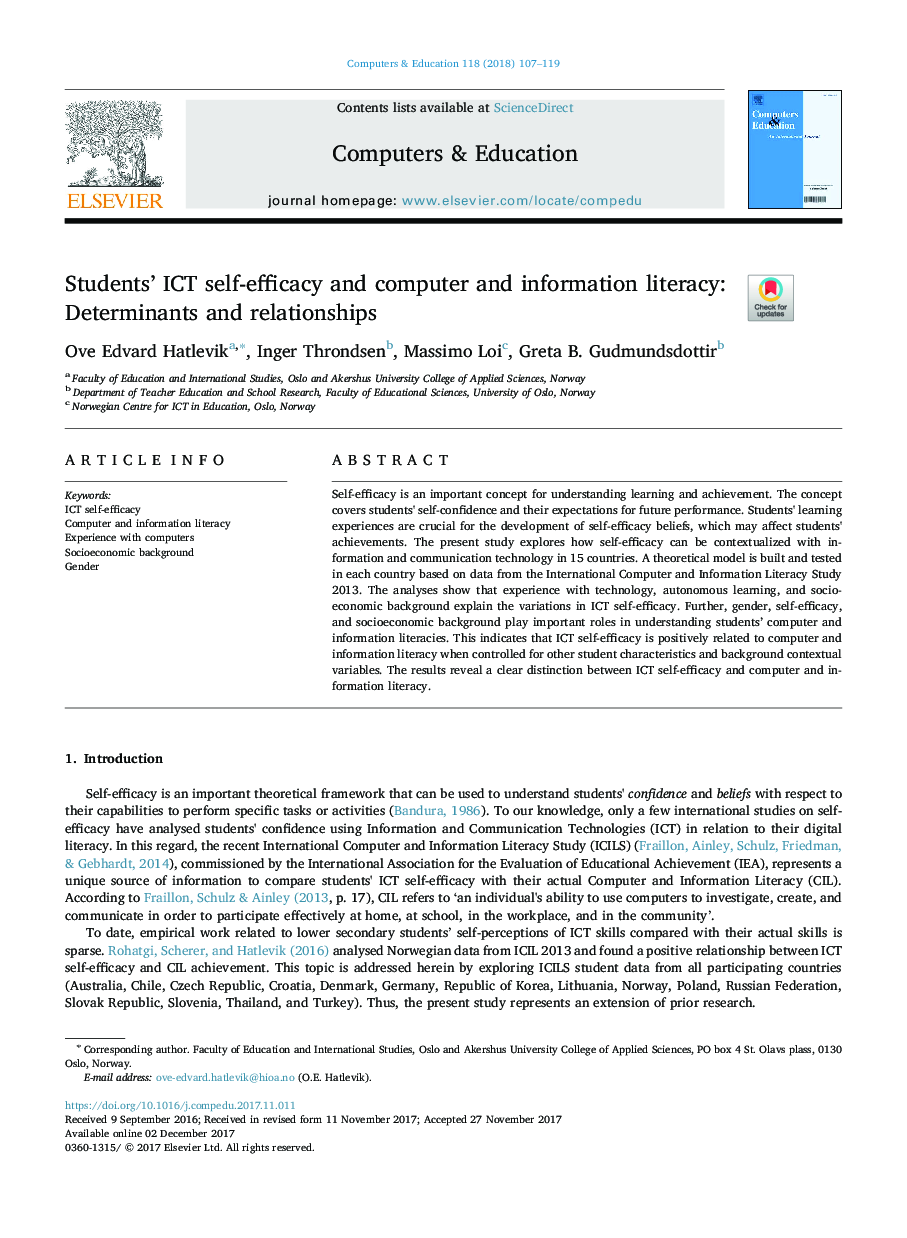| Article ID | Journal | Published Year | Pages | File Type |
|---|---|---|---|---|
| 6834806 | Computers & Education | 2018 | 13 Pages |
Abstract
Self-efficacy is an important concept for understanding learning and achievement. The concept covers students' self-confidence and their expectations for future performance. Students' learning experiences are crucial for the development of self-efficacy beliefs, which may affect students' achievements. The present study explores how self-efficacy can be contextualized with information and communication technology in 15 countries. A theoretical model is built and tested in each country based on data from the International Computer and Information Literacy Study 2013. The analyses show that experience with technology, autonomous learning, and socioeconomic background explain the variations in ICT self-efficacy. Further, gender, self-efficacy, and socioeconomic background play important roles in understanding students' computer and information literacies. This indicates that ICT self-efficacy is positively related to computer and information literacy when controlled for other student characteristics and background contextual variables. The results reveal a clear distinction between ICT self-efficacy and computer and information literacy.
Related Topics
Social Sciences and Humanities
Social Sciences
Education
Authors
Ove Edvard Hatlevik, Inger Throndsen, Massimo Loi, Greta B. Gudmundsdottir,
